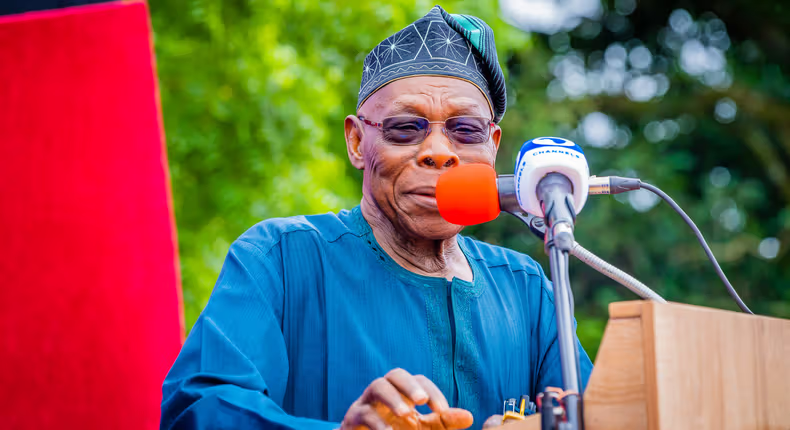Former President Olusegun Obasanjo has called on the Federal Government to ensure the effective implementation of policies for the development of Nigeria.
He made this statement during the eighth Retired Brig.-Gen. Ogbonna Agu Annual Lecture and Awards Ceremony, organized by the Nigerian Institution of Space Engineers (NISE) in Abuja on Saturday. The theme of the lecture was “Nigeria’s 21 Years in Space: Achievements, Challenges and Prospects.”
Obasanjo highlighted that many policies, particularly in the area of space technology, remain unimplemented and unexecuted. He emphasized that merely having good policies is not sufficient. “It is not enough to have good policies; Nigeria is not in short supply of good policies. In fact, go to our archives; it is a burial ground of unexecuted policies which leaves us where we should not be,” he stated.
He pointed out that Nigeria’s archives are filled with dead or unimplemented policies, which have contributed to the country’s stagnation. “Those who have made progress have not done it on mere wishes. They took active steps,” he said. Obasanjo lamented that the original program for Nigeria’s space initiative, which included the launch of multiple satellites, had not been followed through.
Dr. Mathew Adepoju, the Director-General of the National Space Research and Development Agency (NASRDA), shared that the Federal Government had approved four new satellites for the National Space and Satellite Programme, including three optical satellites and one synthetic satellite. He stressed that the government cannot solely drive the National Space Programme and that active participation from the private sector is essential for success.
Dr. Umar Abdullahi, the National Chairman of the Nigerian Institution of Space Engineers, acknowledged setbacks related to satellite lifespan, funding limitations, policy inconsistencies, and a lack of manufacturing capabilities. He stated, “These challenges have tested our resilience and raised important questions about the sustainability of the space programme.” Abdullahi emphasized that Nigeria’s journey in space should address real-world problems, such as flooding, food security, environmental monitoring, and national security.

